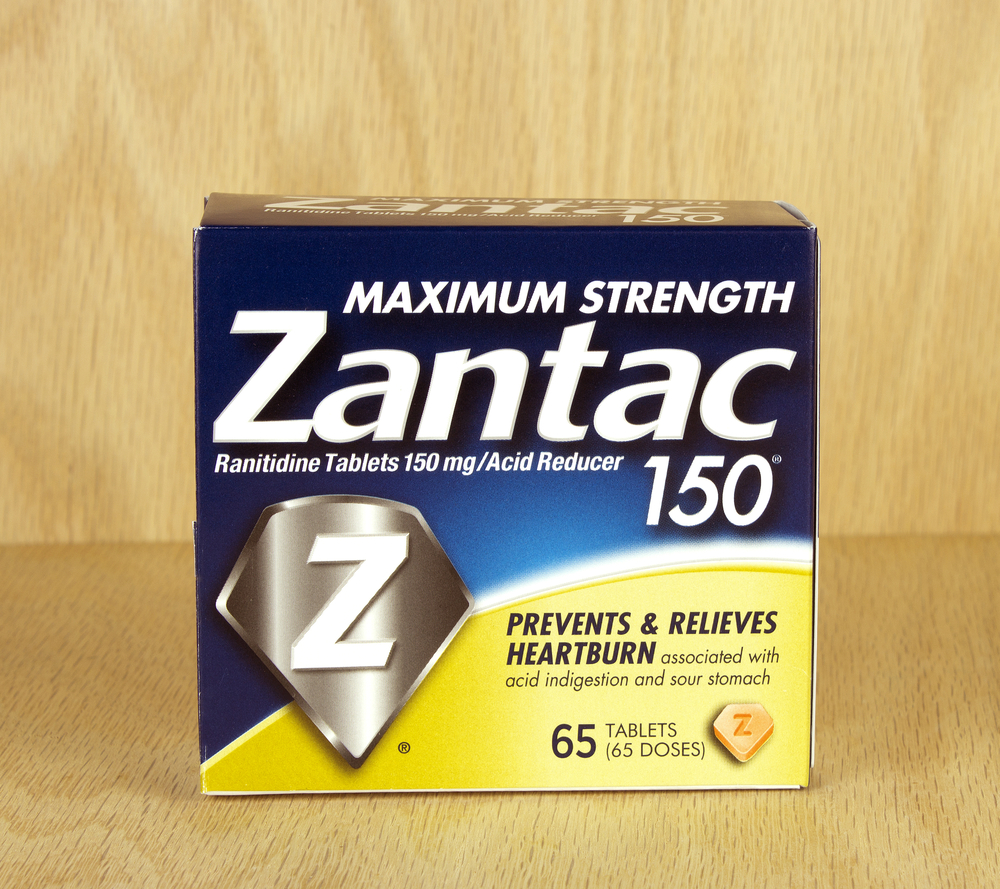Zantac (ranitidine), released in 1983, was a popular heartburn medication available in both over-the-counter (OTC) and prescription forms. There were nearly 14 million prescriptions issued for it in 2019.
Ranitidine, a type of drug called an H2 blocker, treats heartburn by reducing stomach acid. Eating spicy foods, overeating and drinking too much alcohol can cause a burning feeling in the chest or “sour stomach.” Ranitidine can start working within minutes and reduce heartburn for up to 12 hours; in higher doses available by prescription only, it can also treat more serious symptoms like ulcers and gastroesophageal reflux disease (GERD).
In April 2020, the U.S. Food and Drug Administration (FDA) permanently removed Zantac from the market. A year later, Zantac manufacturer, Sanofi, relaunched the product under the name Zantac 360 with famotidine, another H2 blocker, in place of ranitidine.
Why Was Original Zantac Pulled From Shelves?
The original formulation of Zantac was pulled from shelves after a medication quality lab discovered evidence in 2019 that ranitidine contains N-nitrosodimethylamine (NDMA), a probable human carcinogen. The lab results also revealed that storing ranitidine for long periods of time in a humid environment - such as a medicine cabinet - significantly increases NDMA levels past the safe daily level of 96 nanograms, an incredibly small amount. The chemical is found in air, water, certain cooked/fermented foods, tobacco, and alcoholic drinks at generally acceptable levels.
NDMA’s classification of “probably carcinogenic to humans” means that while its cancer-causing risks have not been unequivocally established in people, they have been proven in animals, so it’s reasonable to believe the compound is also a threat to us. Several reputable studies done over the past two decades support this hypothesis.
One such study from The American Journal of Clinical Nutrition found that more than 3,000 out of 23,363 participants developed rectal cancer after 11 years of NDMA exposure. A 2015 meta-analysis of more than 20 published research articles found a link between NDMA and various gastrointestinal cancers.
Is the New Zantac 360 Safe?
The new version of Zantac has the same active ingredient, famotidine, as competing heartburn brand Pepcid AC. Famotidine also works quickly and stays effective for up to 12 hours, so Zantac 360 users will get the same benefits as the original formula without the cancer risks of ranitidine. Zantac 360 contains no NDMA at all.
Famotidine also treats more serious gastrointestinal conditions caused by too much stomach acid, such as ulcers and GERD.
Common side effects of Zantac 360 are the same as most other medications and can include headache, dizziness, constipation, or diarrhea. Users who develop more serious complications after using it should seek immediate medical care. Watch out for:
- Seizures
- Sudden muscle pain, weakness or tenderness
- Fever, unexplained fatigue
- Dark urine
- Confusion, agitation or hallucinations
Zantac Lawsuits
In 2019, Zantac users diagnosed with various cancers began filing lawsuits against the medication’s various manufacturers, including Pfizer, Boehringer Ingelheim, GlaxoSmithKline and Sanofi. The Zantac lawsuits allege that drug companies and distributors knew about Zantac’s NDMA risks and did nothing to warn consumers.
Florida U.S. District Judge Robin Rosenburg denied a request by the defendants to dismiss the 100,000+ claims late last year. Because the claims are against the same product for the same reasons, in February 2020, about 800 of them were consolidated under multidistrict litigation (MDL) in South Florida. MDL is a common practice to task one judge with all pretrial proceedings to save time and money. Florida trials with randomly selected plaintiffs will begin next summer unless the drug companies reach a settlement agreement.
Plaintiff Jill Goldstein of Boynton Beach was diagnosed with breast cancer in August 2019 after treating her chronic indigestion with OTC and prescription Zantac for more than 20 years. A cancer research study cited by her lawyers found that people who regularly take Zantac had a 240% greater chance of developing Goldstein’s particular cancer, ductal carcinoma, than non-users. Goldstein endured a breast lumpectomy to remove her cancerous tissue and is now receiving chemotherapy and radiation.
The first California class action lawsuit has a trial scheduled for October.
Possible compensation the victims might be awarded includes hospital bills and other medical expenses, lost current and future wages, pain and suffering and more.
While people with cancer make up the majority of plaintiffs, families whose loved ones succumbed to their allegedly Zantac-related cancers could also successfully sue for wrongful death.














